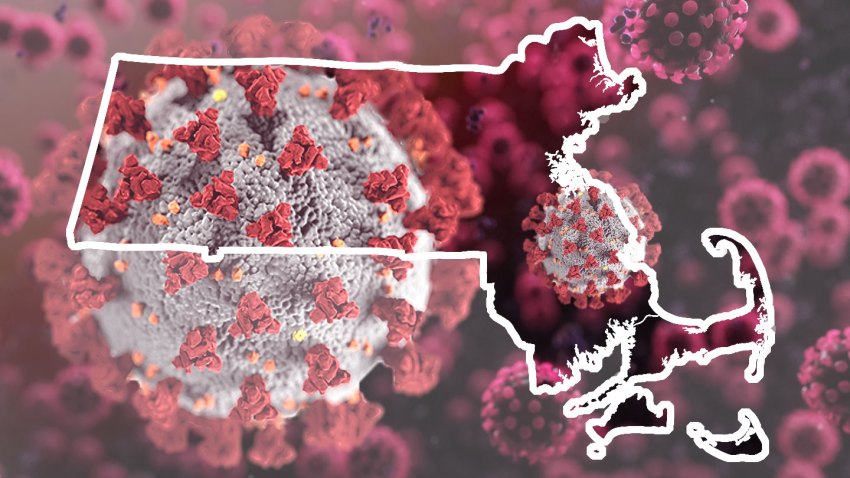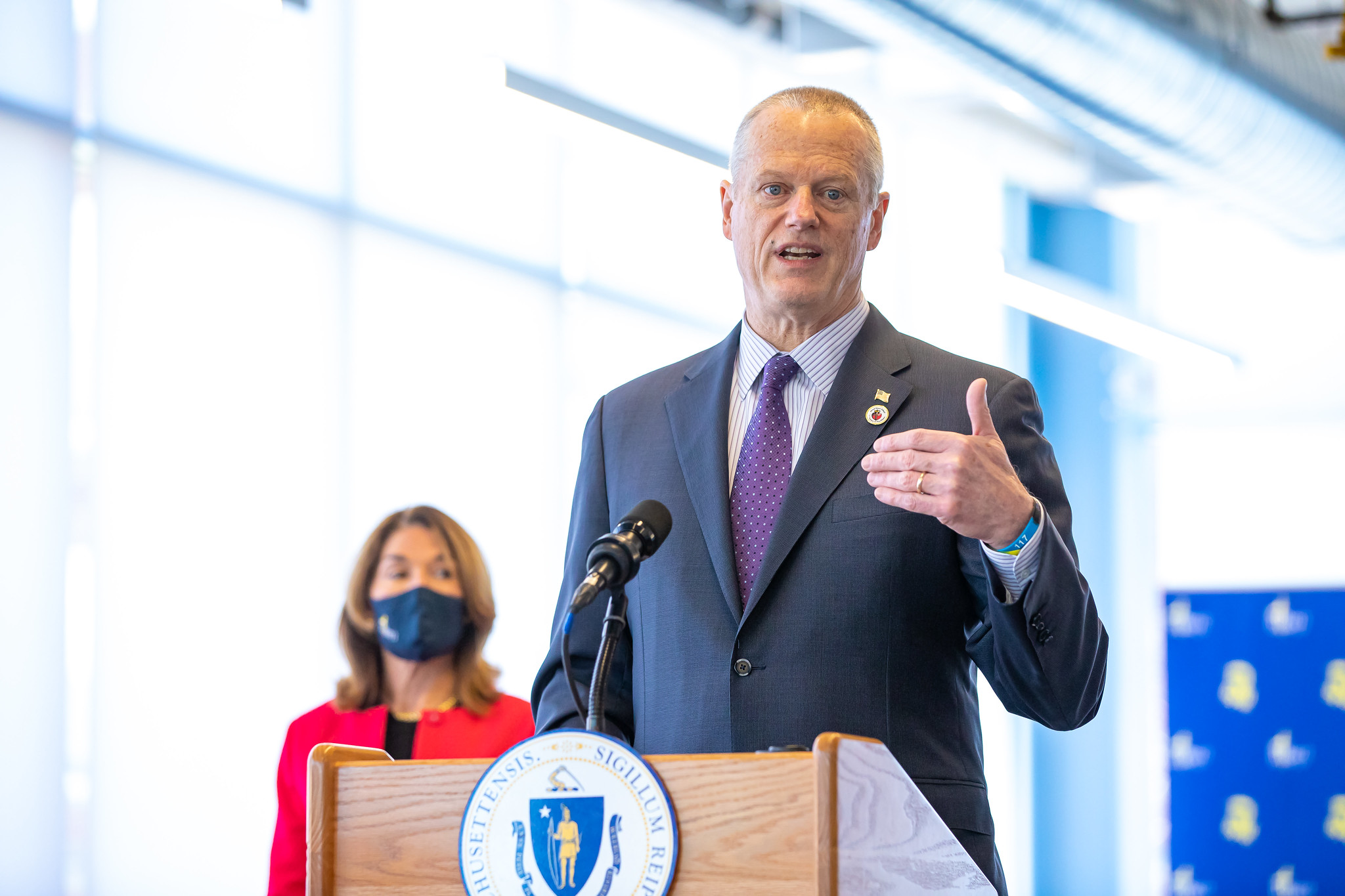Massachusetts Gov. Charlie Baker announced Thursday that the state is expected to receive an additional 40,800 doses of the single-dose Johnson & Johnson COVID-19 vaccine next week.
The governor said the state received a modest increase in its supply of first doses this week -- 172,000 in all. That included 7,900 doses of the Johnson & Johnson vaccine.
In total, Massachusetts received 330,000 first and second doses as part of its allocation. That does not include the 24,570 doses provided directly by the federal government to pharmacies and community health centers.
"Vaccines are here, and that's a great thing, but we're still in a race against time, especially as the supply remains constrained," Baker said. He noted that the state is starting to see more positive cases in people under the age of 30, and urged residents to continue wearing masks and remaining vigilant.
The governor also announced the launch of a new program aimed at helping to vaccinate the state's roughly 25,000 homebound residents. The program will start on Monday, March 29, allowing those who are unable to travel to a vaccine location without significant difficulty or assistance to receive shots in their own homes.
In 170 cities and towns, local boards of health will administer vaccines to their residents. A statewide service operated by the Commonwealth Care Alliance will assist residents in the other 181 municipalities. Homebound residents or their relatives can call 1-844-771-1628 to begin the process of scheduling an in-home vaccine appointment. The line will be open Monday through Friday from 9 a.m. to 5 p.m., available in English and Spanish and with translators available for other languages.
“The program is designed for individuals who have considerable difficulty or require significant support to leave the home for medical appointments,” said Marylou Sudders, secretary of Health and Human Services. “Or they require an ambulance or two person assistance to leave the home.”
Baker also announced Thursday that the state will direct $100 million to four hard-hit communities that will receive significantly less federal stimulus funding than other Massachusetts cities and towns: Chelsea, Everett, Methuen and Randolph. While other municipalities are in line for tens of millions of dollars, those four communities are expecting several times less. Overall, Massachusetts will receive $7.9 billion in direct aid, $3.4 billion of which will go to counties, cities and towns, Baker said.
The governor's remarks Thursday came as the state takes steps to reopen the economy and return to in-person learning at schools.
The state moved into Phase 4, Step 1 of its reopening plan Monday, and replaced the state's COVID-19 travel order with a travel advisory. The latest reopening phase allows large entertainment and sports venues to reopen and increases gathering limits.
Meanwhile, all elementary schools in Massachusetts are expected to phase out remote learning by April 5, according to guidance issued by the Massachusetts Department of Elementary and Secondary Education earlier this month.
Some districts -- including Somerville, Brockton, Chelsea, Springfield and Boston -- have been granted waivers and allowed to delay the return to in-person learning in order to prepare for the transition.
Massachusetts public health officials confirmed another 1,865 cases of the coronavirus and 54 new deaths on Wednesday.
The update puts the total of confirmed cases at 584,024 and the death toll at 16,632, according to the Massachusetts Department of Public Health. Another 338 deaths are considered probably linked to COVID-19.
Massachusetts' coronavirus metrics had been trending downward to start the year, though some, like the average number of new cases per day and average number of tests returning positive, have leveled off in recent weeks, according to the Department of Public Health's interactive coronavirus dashboard. The figures reported daily are important for tracking trends with the virus' spread, though a single-day change may not reflect a larger trend, and may reflect incomplete data.
Residents at least 60 years old and a new group of essential workers are now eligible for the COVID-19 vaccine, including grocery store and restaurant workers. The next group of residents eligible for the vaccine includes those aged 55 and older or residents with one certain medical condition, beginning April 5.
As of Tuesday, more than 1.1 million people in Massachusetts had completed their Pfizer, Moderna or Johnson & Johnson vaccine regimens. Since vaccination began here in December, a total of 1.9 million people have received at least one of the two necessary Pfizer or Moderna shots, and more than 3 million vaccine doses have been administered in total.
Health care workers, first responders, and the residents and staff of long-term care facilities and congregate care sites, including prisons and jails, were among the first tier of people made eligible for vaccines under a Baker administration distribution plan. The eligibility pool has since expanded to include people age 60 and over, those with multiple medical conditions that put them at higher risk from COVID-19, and some other workers, like teachers, grocery store staff, and transit operators.



